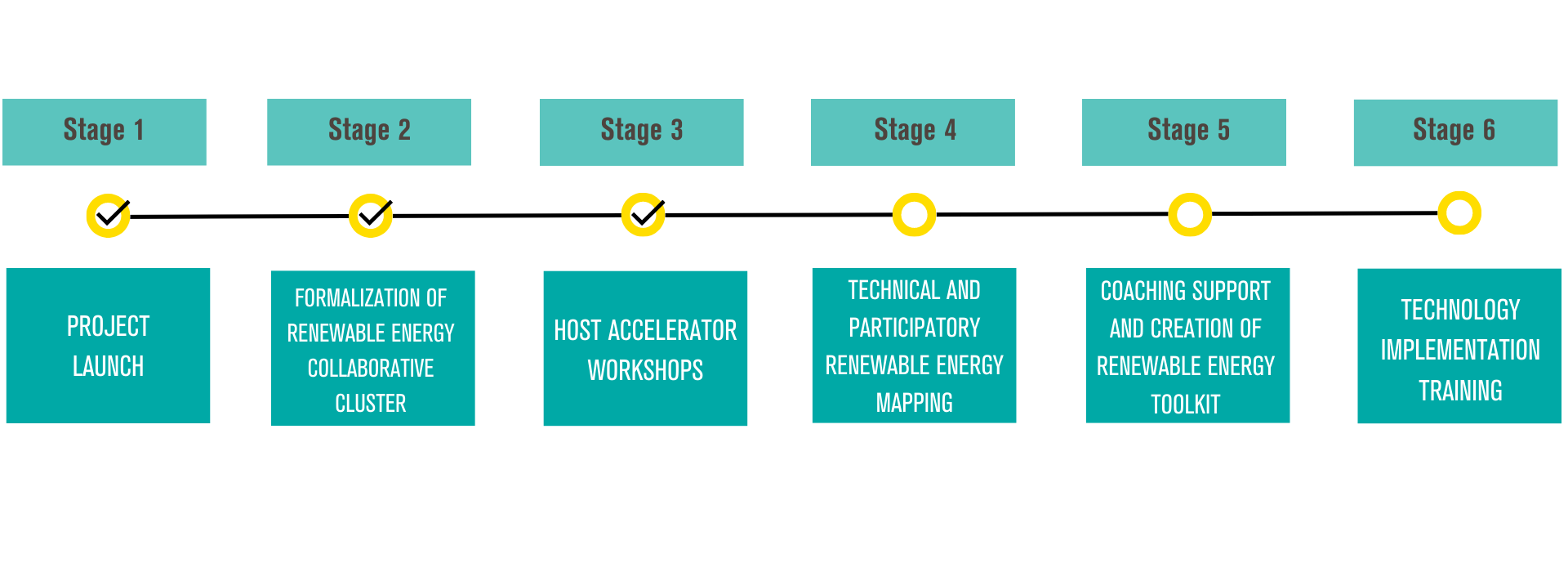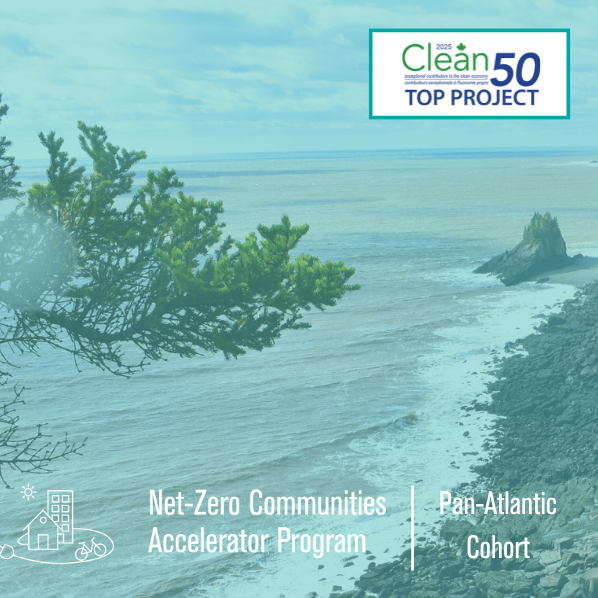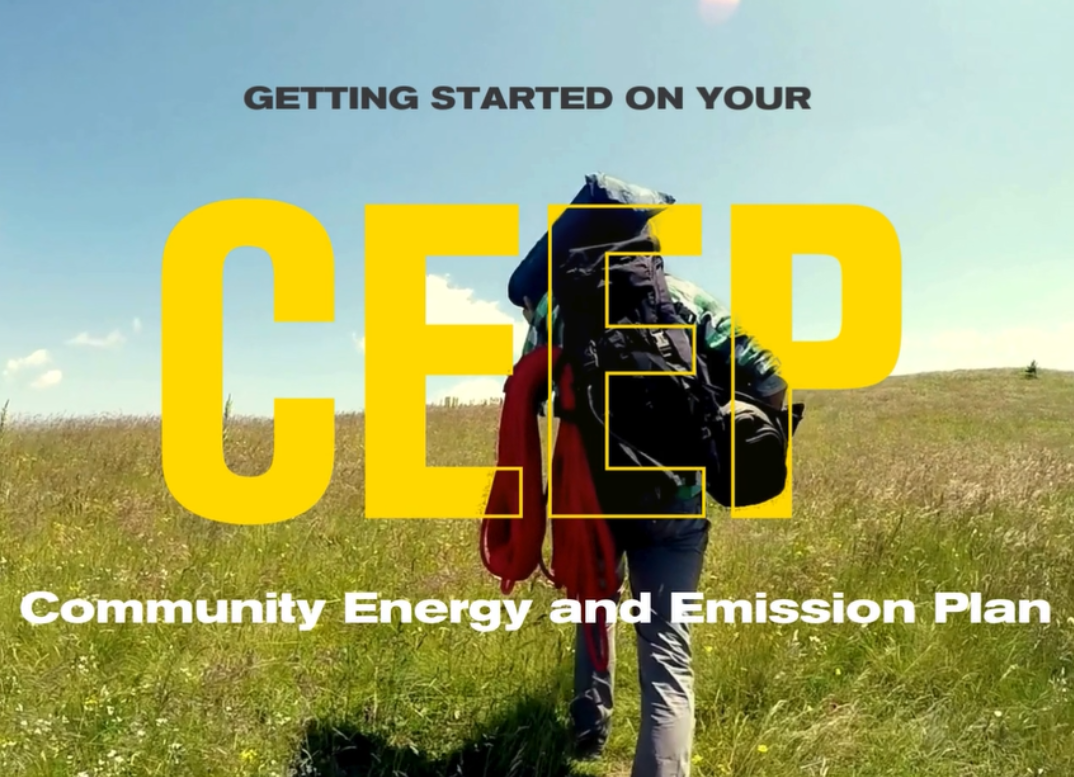Accelerating Implementation of Renewable Energy for Indigenous Communities
QUEST Canada Launches its Accelerating the Implementation of Renewable Energy in Indigenous Communities Project
QUEST Canada is pleased to announce the launch of its project, Accelerating the Implementation of Renewable Energy in Indigenous Communities, an innovative initiative that enables remote Indigenous communities to build local capacity to accelerate renewable energy projects, building a pathway to net-zero. Lire le communiqué de presseÀ PROPOS DU PROJECT
Accelerating Implementation of Renewable Energy (AIRE) for Indigenous Communities is a three-year project designed to help rural and remote Indigenous communities reach emission reduction targets by increasing their capacity to plan and implement land-based renewable energy initiatives (solar, wind, biomass, and geo-thermal). This project supports rural, remote Indigenous communities on their pathway to net-zero.
The project provides participating Indigenous communities with the information and tools necessary to better assess, identify, and access renewable energy opportunities.
QUEST Canada will develop a publicly available toolkit that rural and remote Indigenous communities and partnering stakeholders can reference to establish and deploy a deeper collaborative planning processes for local renewable energy development. The toolkit will be developed and made available at the end of the project.
CALENDRIER
The project consists of six stages, each designed to support communities on their pathway to net-zero.

“The collaborative work between QUEST Canada, the University of Saskatchewan, and the Peter Ballantyne Group of Companies is key to advancing energy security in the North, but also creating a sustainable future for generations to come. By working together, we are discovering the untapped potential of renewable energy and finding ways to align energy development with community values. This partnership not only benefits the environment but also provides valuable training opportunities for the next generation of leaders, ensuring that they are equipped with the necessary skills to build a better world.”
Communautés participantes
Frog Lake First Nation (FLFN) in rural Alberta and two remote Indigenous communities governed by Peter Ballantyne Cree Nation (PBCN)—an Asinīskāwitiniwak First Nation band government in Northern Saskatchewan (consisting of eight communities)—will participate in the project.
Partners & Supporters
Partenaires
Supporters
For more information about this project, please contact Omar Farag, Senior Lead of Projects, at ofarag@questcanada.org or 866-494-2770 ext. 717.
Renforcer les collectivités canadiennes
QUEST Canada élabore et met en œuvre des projets dans le but de favoriser des partenariats stratégiques, de faciliter les connexions, de responsabiliser les champions communautaires et de conseiller les décideurs, en soutenant les communautés de tout le Canada sur leur chemin vers la carboneutralité. Pour en savoir plus sur nos projets :
Pan-Atlantic NCA
QUEST Canada’s Net-Zero Communities Accelerator (NCA) Program has been recognized with a prestigious 2025 Clean50 Top Project Award. The annual awards recognize initiatives based on their innovation, their ability to inform, and to inspire Canadians.
QUEST Canada’s Pan-Atlantic NCA Program enables Atlantic Canada communities to reach net zero by equipping them with the tools and knowledge to develop and implement community energy and emissions plans and understand the net economic benefits they can provide.
Energy Transition Policy Program
The objective of QUEST Canada’s Energy Transition Policy Program is to engage in a collaborative discussion with energy decision-makers to align climate and energy transition planning and policies that will facilitate sustainable community energy systems in support of a net-zero carbon (carbon neutral) economy by 2050.
Centre de ressources sur la planification communautaire de l’énergie et des émissions
If you’re an NB municipal leader or official, you’ll find everything you need to create a CEEP for your community: from developing a vision to setting targets to implementation and reporting.








